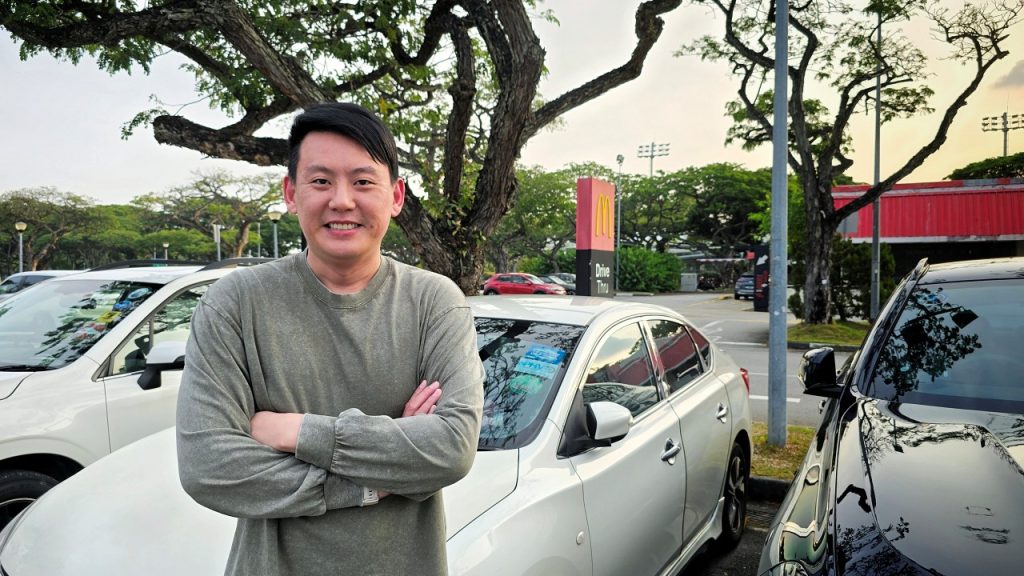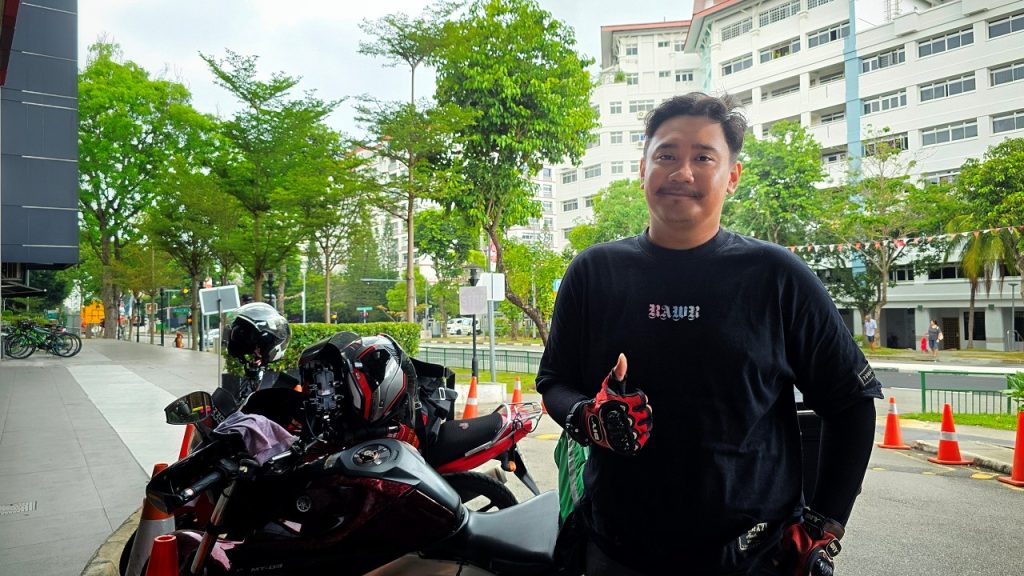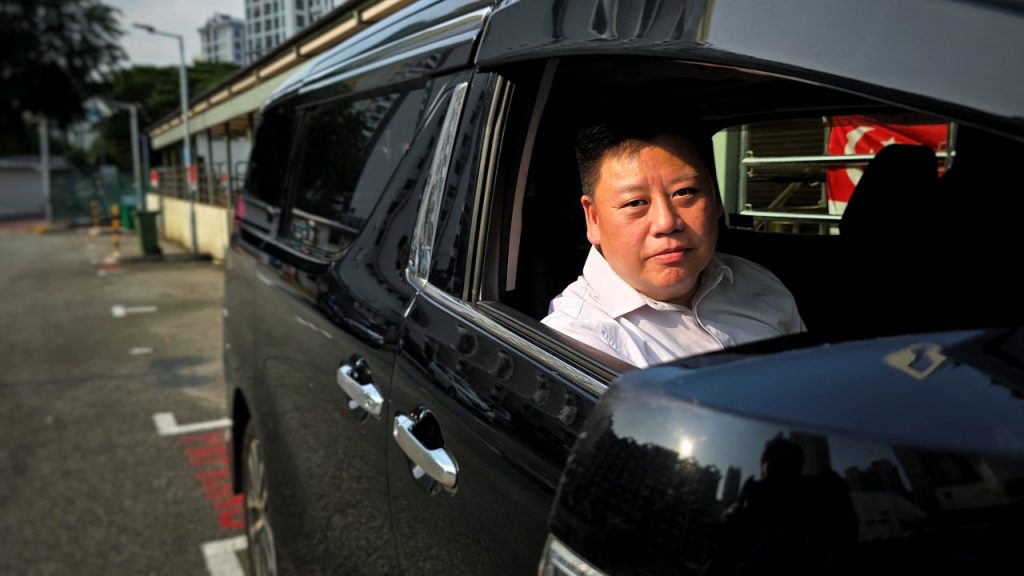A significant shift is on the horizon for cabbies, private-hire car drivers, and delivery riders who depend on online platforms like Grab and foodpanda for their livelihoods.
A new Platform Workers Bill was introduced in Parliament in August to bring platform workers closer to employee-like protections.
The proposed measures include a standardised work injury compensation scheme, increased contributions to the Central Provident Fund (CPF), and the establishment of formal representation.
LabourBeat took to the streets to learn more about what some of these workers felt about the pending changes.

David: A Driver with a Growing Family
David Boo, 38, has been providing for his household through gig work for almost six years now.
The private-hire driver with Grab revealed that he learned about the legislation through conversations with fellow members of the National Private Hire Vehicles Association (NPHVA), as well as from passengers he had ferried.
Overall, he is supportive of the Bill. He felt it was encouraging for associations like NPHVA to receive a stronger legal mandate to represent workers like himself.
He said that it was important that platform associations be given more powers as he felt that drivers in Singapore lacked the unity to speak up collectively as a group.
“If our associations have more rights to speak up for the drivers on what is right and what is wrong, or even help us look into the commission rate across all platforms, that would be really helpful,” he said.
He also welcomed the Government’s move to provide employee-like workplace injury compensation for platform workers, and he looks forward to learning the details of how this would be managed once the legislation is passed.

Khai: A Rider Who Values Assurance and Representation
Grab Delivery Rider Khai, 32, has a positive take on the choice for workers to opt-in for the CPF contribution.
As someone who has been working full-time as a delivery worker for two years, he said: “Personally, I think it is okay because the platform operator will also be topping up the employer portion for workers.
“Those younger workers below the age of 30 can start accumulating their CPF to buy their [future] house. I think having the CPF can also help you with the down payment, so you don’t have to come up with so much cash.”
What is more important to him is the standard coverage for work injury compensation platform companies will provide.
He said he looks forward to more details once the Bill is passed.
“I cannot weigh in now, but it is good that we are covered. A few of my friends, including myself, have met with accidents [while on the job]. If we are covered, at least we can work with peace of mind,” he said.
Khai, a member of the National Delivery Champions Association (NDCA), also values the idea of adequate representation.
Other than NDCA, he feels that there is nowhere else that riders such as himself can turn to when in need.
“Other than perhaps turning to the MP [Member of Parliament], who may or may not be able to assist us, it is important for us to have an avenue like an association where we can go and ask for assistance. And for them to have the power behind them to really do something, it’s a good thing,” he said.

Chris: A Driver with a Mature Family
Chris Ng, 56, has been in the taxi and private-hire industry for nearly two decades.
The father of two children in their 20s switched to fulltime private hire shortly before the pandemic hit in 2019.
He believes that the Bill ultimately protects the future generations of platform drivers and riders.
While he appreciates the move to improve work injury coverage and platform workers’ CPF, he does wonder how this would affect the ride hailing industry.
“Once this is legislated, things like the work injury coverage and CPF contributions, the cost will have to come from somewhere. Will it be through the raising of fares?” he questioned.
Chris shared that he would prefer that his finances remain liquid, and that he can access his savings as and when he needs it.
“Perhaps if the Government can consider letting drivers choose their level contribution for the CPF, then perhaps I will consider opting-in,” he shared.
When asked for his view of the legislation as a whole, he said: “I think that it is good and important that the Government is trying to protect the younger generation of drivers. This legislation will allow youngsters to consider this industry a viable career path, not just something that will join simply because they cannot find another job.
“Even if you are just a driver or a delivery man, as long as you work hard, you can still grow your CPF and get protection from work injuries. So why not?”

